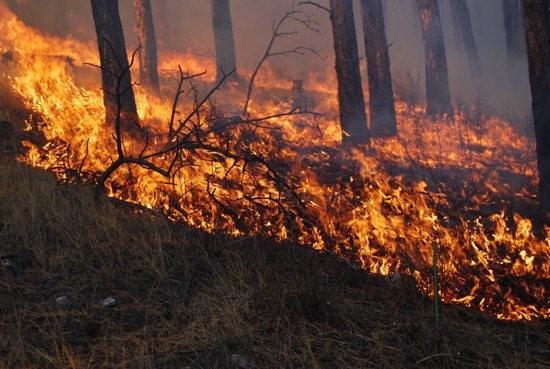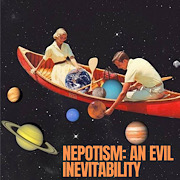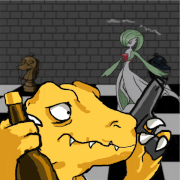|
sbaldrick posted:France and Spain won in the American revolution and the Napoleonic Wars are the only reason the British never launched a reconquest which everyone expected at the time. well, Britain did send an army to the US during the napoleonic wars. We just call it the war of 1812.
|
|
|
|

|
| # ? Jun 2, 2024 00:08 |
|
sbaldrick posted:France and Spain won in the American revolution and the Napoleonic Wars are the only reason the British never launched a reconquest which everyone expected at the time. I don't think so, this is more of a 'why buy the cow when the milk is free' type of deal. America traded pretty much exclusively with Britain anyways with the exception of when the war of 1812 intervened.
|
|
|
|
Tias posted:France or not, Britain is thought to have had a shot at destroying the Continental Army. Whether said shot actually really existed is subject to intense debate, but France wasn't the deciding factor in that one. I know this isn't the modern history thread, but to me France has always come across as the deciding factor there. French diplomats fostered anti-British sentiment in Europe that prevented Britain from reinforcing their troops in America. French sailors removed the British power at sea that had been so effective at mobilizing their troops up and down the coast in earlier parts of the war. French soldiers and mercenaries constituted about a quarter of the Continental forces, including a large number of officers. And the French were directly involved in a number of critical events that led to the British surrender, most particularly victory in the Battle of the Chesapeake, where the French Navy devastated the main British fleet in the colonies and forced their retreat. This in turn allowed the French ships to isolate and blockade the main British army in the Siege of Yorktown, where the French also contributed half the land forces and most of the artillery, which forced the British to end the war. Kaal fucked around with this message at 03:41 on Jul 15, 2021 |
|
|
|
Grand Fromage posted:Everything I've read about Roman education sounds largely the same as what I observed working as a teacher in South Korea and China. Classrooms instead of tutors and fewer beatings, otherwise not a lot different. From Augustine's Confessions, about his education (Bolding mine): quote:Next I was put to school to get learning, in which I (poor wretch) knew not what use there was; and yet, if idle in learning, I was beaten. For this was judged right by our forefathers; and many, passing the same course before us, framed for us weary paths, through which we were fain to pass; multiplying toil and grief upon the sons of Adam. But, Lord, we found that men called upon Thee, and we learnt from them to think of Thee (according to our powers) as of some great One, who, though hidden from our senses, couldest hear and help us. For so I began, as a boy, to pray to Thee, my aid and refuge; and broke the fetters of my tongue to call on Thee, praying Thee, though small, yet with no small earnestness, that I might not be beaten at school. And when Thou heardest me not (not thereby giving me over to folly), my elders, yea my very parents, who yet wished me no ill, mocked my stripes, my then great and grievous ill.
|
|
|
|
Silver2195 posted:Honestly, I've always been more surprised by how good ancient education systems seem to have been; I guess it depends on your point of comparison. I think it's generally agreed that literacy rates were higher than in the Middle Ages in many areas, and at the elite level there was poetry and philosophy being produced that's still well-regarded to varying degrees. For that matter, even education in the Middle Ages was pretty good compared to the popular view of the Middle Ages today. Literacy also developed during the medieval period. Between the fall of the western empire and Charlemagne literacy really is very low outside of the church. This spread back to royal courts in the Carolingian age with its emphasis on court intellectuals and in the following centuries ideas of a “literate public” that had fallen off with the Roman civic elite began to resurface though in a quite different form. A really good book about this is Clanchy’s From Memory to Written Record. It’s just about post-conquest England which is kind of a special case, but still, great read.
|
|
|
|
Grand Fromage posted:It's hard to blame people for wanting to preserve any species given what we're doing to the environment, but yeah, pandas were likely not long for this world whether or not humans were around. Were they not pretty chill in their bamboo forests, very rarely fuckin, until we took away most of their habitat? sbaldrick posted:France and Spain won in the American revolution and the Napoleonic Wars are the only reason the British never launched a reconquest which everyone expected at the time. France only bothered after Saratoga, not to mention more british failures that are rather played as US failures but lucky by the self-loathing US crowd, and there's a reason that the northwest conflict, the civil war, etc never resulted in a british reconquest. No one, most of all the British Empire, wanted it or thought it would succeed. There is no timeline where Napoléon croaks early and Britain steamrolls the US in 1812. Edgar Allen Ho fucked around with this message at 16:02 on Jul 15, 2021 |
|
|
|
Pandas breed just fine in the wild
|
|
|
|
Edgar Allen Ho posted:Were they not pretty chill in their bamboo forests, very rarely fuckin, until we took away most of their habitat? I am not a pandaologist. What I know for sure is giant pandas are trash animals, red panda supremacy.
|
|
|
|
Grand Fromage posted:I am not a pandaologist. What I know for sure is giant pandas are trash animals, red panda supremacy. with ya there
|
|
|
|
Where's the rest of the panda rainbow
|
|
|
|
cheetah7071 posted:Where's the rest of the panda rainbow They hosed even less, and, well...
|
|
|
|
How much evidence is there for Native American management of forests and the impact of that on native ecosystems? I know that large parts of North America were relatively densely populated but relatively is the key word there. North America just seems so huge and pre-industrial populations so small that it seems difficult to imagine it was all getting intentionally burnt down every decade or so.
|
|
|
|
Sri.Theo posted:How much evidence is there for Native American management of forests and the impact of that on native ecosystems? Some short tidbits before dentist. A lot. California being a more well studied example. Population densities in some areas throughout the Americas were comparable to European densities at similar time periods. If not greater. It's not the entire continent, and I imagine they cycled what plots got burned as needed. The fires are also not super extreme in a lot (most?) of cases, for instance a low intensity creeping burn is great in oak forest because it clears poo poo out for the bigger trees and makes getting acorns and such easier. Telsa Cola fucked around with this message at 18:11 on Jul 15, 2021 |
|
|
|
Sri.Theo posted:How much evidence is there for Native American management of forests and the impact of that on native ecosystems? Changes in the Land is a good starter book about it
|
|
|
Sri.Theo posted:How much evidence is there for Native American management of forests and the impact of that on native ecosystems? There's a fair bit, especially in South America. 1491: A History of the Americas Before Columbus is a good book covering the topic though it may be a little outdated now.
|
|
|
|
|
a big part of the reason the population was so small was the ravages of smallpox before colonization really took off. the indigenous people of north america practised a number of land management techniques when they had the population, there were places the mortality rate was 90%. we more or less conquered the post-apocalyptic version of their states.
|
|
|
|
imo everyone should read La relación de Álvar Núñez Cabeza de Vaca because it's one of the most insane loving historical accounts i've ever read in my life and it's free even in 1528 they were finding entire cultures completely gone and basically wandering around a set of gulf coast > southwest cultures in total social upheaval as a result (some of which no longer exist by the time the next european visits the region) eke out fucked around with this message at 18:56 on Jul 15, 2021 |
|
|
|
|
eke out posted:imo everyone should read La relación de Álvar Núñez Cabeza de Vaca because it's one of the most insane loving historical accounts i've ever read in my life and it's free Do you have a preferred English translation?
|
|
|
Tulip posted:Do you have a preferred English translation? absolutely no idea, i read some extremely old one that was public domain
|
|
|
|
|
I can dig that, I'm hardly above reading 19th century translations
|
|
|
|
Feral pigs and smallpox killed so many that the second set of Europeans on the scene just found ghost towns. It's loving nuts to imagine.
|
|
|
Tulip posted:I can dig that, I'm hardly above reading 19th century translations here we go, almost certainly this one: https://archive.org/details/journeyofalvarn00nuoft/page/n9/mode/2up with the outstanding translator name of Fanny Bandelier
|
|
|
|
|
fantastic period drag name
|
|
|
|
Tulip posted:Do you have a preferred English translation? This is a fun one https://exhibits.library.txstate.edu/cabeza/exhibits/show/cabeza-de-vaca/relacion You get the original text as well. I had to read it in high school but I think it holds up.
|
|
|
|
Telsa Cola posted:Some short tidbits before dentist. Yeah when you picture frequent fire ecosystems, it's worth remembering that most of the area burned by most of the fires in a healthy fire regime will look something like this:  They clear out the detritus, refresh the soil, and maybe knock some openings in the canopy here and there but leave most of the established trees scorched but alive
|
|
|
|
Edgar Allen Ho posted:Were they not pretty chill in their bamboo forests, very rarely fuckin, until we took away most of their habitat? I think there’s exists a kind of overreaction to all the American WWII media that ignores or belittles the people of Eastern Europe and portrays Americans as single handedly defeating Hitler while the incompetent lesser races look on in childlike adoration. So people turn it around and become adamant in saying America actually lost everything and it was actually someone else who won whichever war or “really” invented whichever part of American cuisine.
|
|
|
|
Mr. Nice! posted:Feral pigs and smallpox killed so many that the second set of Europeans on the scene just found ghost towns. It's loving nuts to imagine. a lot of Europeans walked in and were like 'wow this is such a rich natural landscape, it's like a garden', because it was an actual garden, and the people who tended it had died or left before they showed up.
|
|
|
|
Tunicate posted:a lot of Europeans walked in and were like 'wow this is such a rich natural landscape, it's like a garden', because it was an actual garden, and the people who tended it had died or left before they showed up. Leave to go check on your other land for ONE SEASON and now there are all these white dudes squatting there claiming some guy named God gave them all this stuff for free.
|
|
|
|
If we can talk about more than ancient history, we got a crash course on the the Inca and Mayans back in high school. Totally randomly while searching for something else, I came across a discussion of how the Inca would conquer villages and then select women as sacrifices. It was viewed as an honor but the girls would be walled in alive. All I could think was "we didn't learn that in school." All I remember was discussing record keeping, I think currency,etc.. The Aztecs are the ones associated with human sacrifice.. In any event, is all this about the Inca true? Was it.._"common?" As I said, I haven't really read up on any of this since 9th grade.
|
|
|
|
The Inca didn’t practice grand-scale blood sacrifice in the way the Mexica did but they for sure whacked kids as a matter of course. Inca society had a social role or institution of holy virgin, in Quechua called aclla. Recommend reading up on this because it’s hard to describe. Kind of like Vestals but also kind of more like nuns, but if all convents were state operated and also some of the higher-class nuns regularly got given out as wives for political expediency. Anyway they also sometimes sacrificed the young ones. You find an unusually perfect kid, give it a kind of period of ritual purification give it nice clothes, food, show it off to the emperor, etc then take it up a mountaintop, sedate it with alcohol and coca, and then kill it and bury it with goods.
|
|
|
|
Sedate with coca? I don't think that's what coca does.
|
|
|
|
I believe the process is known as "Capacocha". I visited Peru a few years ago, including to the museum housing this young lady: https://en.m.wikipedia.org/wiki/Mummy_Juanita Wikipedia posted:The final six to eight weeks of life for a sacrificed Incan child consisted of heavy use of drugs and alcohol. With a combination of coca and chicha alcohol, the children would be in a highly intoxicated psychological state. Markers in Juanita's hair indicate that she was given coca and alcohol prior to her death, suggesting that she was in a state of near unconsciousness. Edited to add a quote.
|
|
|
|
Edgar Allen Ho posted:No one, most of all the British Empire, wanted it or thought it would succeed. There is no timeline where Napoléon croaks early and Britain steamrolls the US in 1812. Yeah, this is fair. Bear in mind its not Britain that declared war, yeah? It started off with the US (incompetently) invading Canada. Britain wanted the US to just sit back down, shut up and let it get on with the important poo poo it was trying to get done at the time. Once 1815 rolls around and impressment is no longer a thing Britain is quite happy to get back to trading with the US more or less status quo ante bellum. It's not a war of reconquest. feedmegin fucked around with this message at 14:18 on Jul 16, 2021 |
|
|
|
The us had a pretty good reason for going to war given the whole impressing it's citizens thing.
|
|
|
|
feedmegin posted:Yeah, this is fair. Bear in mind its not Britain that declared war, yeah? It started off with the US (incompetently) invading Canada. Britain wanted the US to just sit back down, shut up and let it get on with the important poo poo it was trying to get done at the time. Once 1815 rolls around and impressment is no longer a thing Britain is quite happy to get back to trading with the US more or less status quo ante bellum. It's not a war of reconquest. Most of the US government had no desire to conquer Canada. That's another canadian nationalist myth. And like I was a professional re-enactor in forts on the canadian border to the US for a bit, so I'm not exactly a screaching US ultranat. It's particularly telling how people love to go "lol US lost to Canada" when at the time, it installed in Canada it installed a national myth of "oh gently caress, they're coming again someday," whereas in the US, the war led to a national happy time that the US successfully took on a chief empire of the world and did well enough. It's a peeve how that's become a huge thing. And worse, usually adopted by dumbass americans themselves. This is prolly better for that other, more pike-focused thread though so I'll stop. Edgar Allen Ho fucked around with this message at 16:00 on Jul 16, 2021 |
|
|
|
Without Napoleon or an equivalent one of the biggest Britain side causes of the war also disappears. No Napoleon means no British attempts to stop US trade with continental Europe.
|
|
|
|
Gaius Marius posted:The us had a pretty good reason for going to war given the whole impressing it's citizens thing. Both the British and American perspectives on impressment were pretty reasonable IMO (though not the part where the British would impress people found in American ports, that's just so egregious). Edgar Allen Ho posted:Most of the US government had no desire to conquer Canada. That's another canadian nationalist myth. And like I was a professional re-enactor in forts on the canadian border to the US for a bit, so I'm not exactly a screaching US ultranat. Yeah the War of 1812 is weird as a Canadian. Like it's entertaining how badly the US invasion of Canada goes, at least initially: militiamen marching to the border and then refusing to cross, and Hull surrendering Detroit because he's just so god damned scared of Indians (I hesitate to use the word, but given the difference in Canadian/American usages I'm going with the period term) are fairly entertaining scenes as far as war goes. But then we have former PM Stephen Harper trying to build the war up into an (Anglophone) nationalist propaganda piece, mostly ignoring that all of the best performances from actual Canadian residents were the French militia (who were largely ignored, I don't think the Quebecois really give a poo poo about 1812 either way?) and the Indian (again, not the right word) allies who were completely sold down the river when the war wrapped up.
|
|
|
|
PittTheElder posted:Both the British and American perspectives on impressment were pretty reasonable IMO (though not the part where the British would impress people found in American ports, that's just so egregious). I think we can cut you some slack with using the term because of the era you grew up in, but these days my kids scold me if I use the 'I' word when discussing Native Americans, so I am trying to eliminate that as a term from my vocabulary.
|
|
|
|
sullat posted:I think we can cut you some slack with using the term because of the era you grew up in, but these days my kids scold me if I use the 'I' word when discussing Native Americans, so I am trying to eliminate that as a term from my vocabulary. "American Indians" seems to be, if anything, the preferred term in a US context.
|
|
|
|

|
| # ? Jun 2, 2024 00:08 |
|
Silver2195 posted:"American Indians" seems to be, if anything, the preferred term in a US context. Not really, it's entirely dependent on where you are. I live about 30 mins south of the Navajo reservation in Arizona and the preferred term here is Native American. American Indians has a lot of academic inertia behind it but so do things like Anasazi.
|
|
|




































 Yes, it's like a lava lamp.
Yes, it's like a lava lamp.